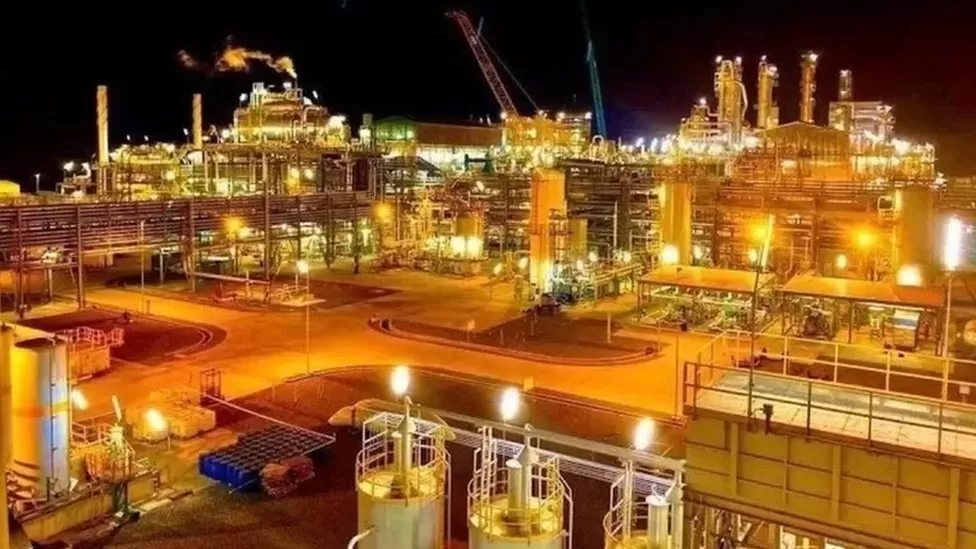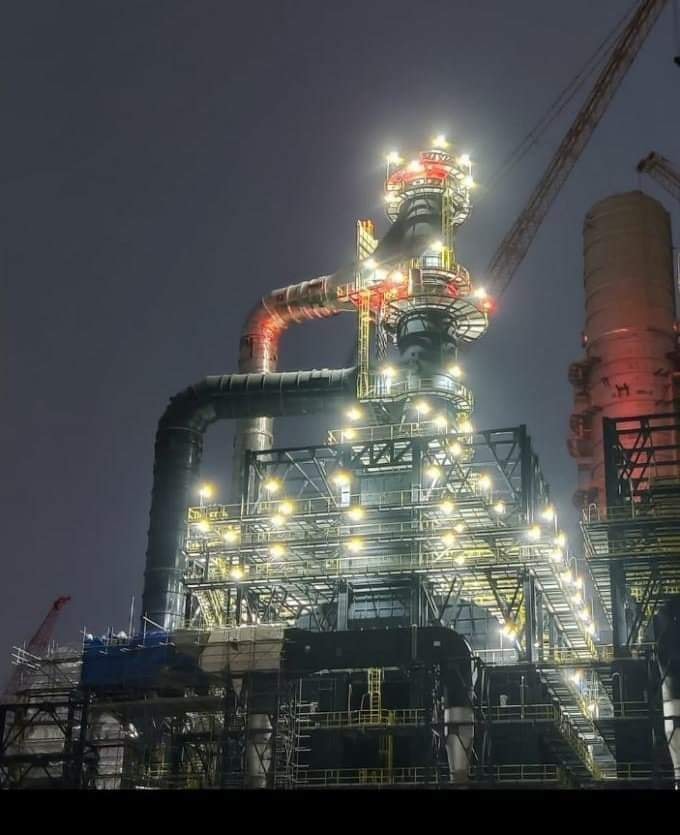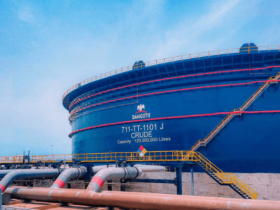
The Dangote Refinery recently turned on its tower lightning, sparking curiosity and anticipation in the energy and industrial sectors. The refinery, situated in the Lekki Free Trade Zone of Lagos, Nigeria, has been a focal point of attention due to its massive scale and potential to reshape the nation’s oil and gas landscape.
The Dangote Group, led by Africa’s richest person, Aliko Dangote, has been at the forefront of Nigeria’s industrial development with plans for the refinery. In May 22nd, 2023, former President Muhammadu Buhari inaugurated the 650,000 barrels per day Dangote Refinery, the world’s largest single-train refinery.
The refinery holds the promise of reducing the country’s dependence on imported petroleum products and significantly contributing to the national economy.
As reported by Arise News, Dangote Petroleum Refinery and Petrochemicals recently achieved another milestone by acquiring 1 million barrels of Agbami crude grade from Shell International Trading and Shipping Company Limited (STASCO). This strategic procurement represents the inaugural phase of a comprehensive plan, with a total of 6 million barrels slated for supply to the Dangote Petroleum Refinery by diverse suppliers.
READ ALSO: Kogi Guber: Dino Melaye Denies Receiving N3bn For Election
This groundbreaking development holds immense promise for mitigating fuel supply challenges not only within Nigeria but also across West African countries. The Dangote Refinery also stands ready to process most African crude grades, Middle Eastern Arab Light, US Light tight oil, and crude from other nations.
Dangote Petroleum Refinery is strategically positioned to meet 100% of Nigeria’s demand for all refined products, including gasoline, diesel, kerosene, and aviation jet fuel. Remarkably, the refinery boasts surplus production for export, contributing to the nation’s economic growth.
While news outlets have reported the commencement of production at an impressive 650,000 barrels per day, a shadow of doubt has been cast by the International Monetary Fund (IMF) earlier report. Contrary to optimistic projections, the IMF has expressed skepticism, stating that it doubts the refinery will reach a production capacity of 250,000 barrels per day by the end of 2025.







Leave a Reply